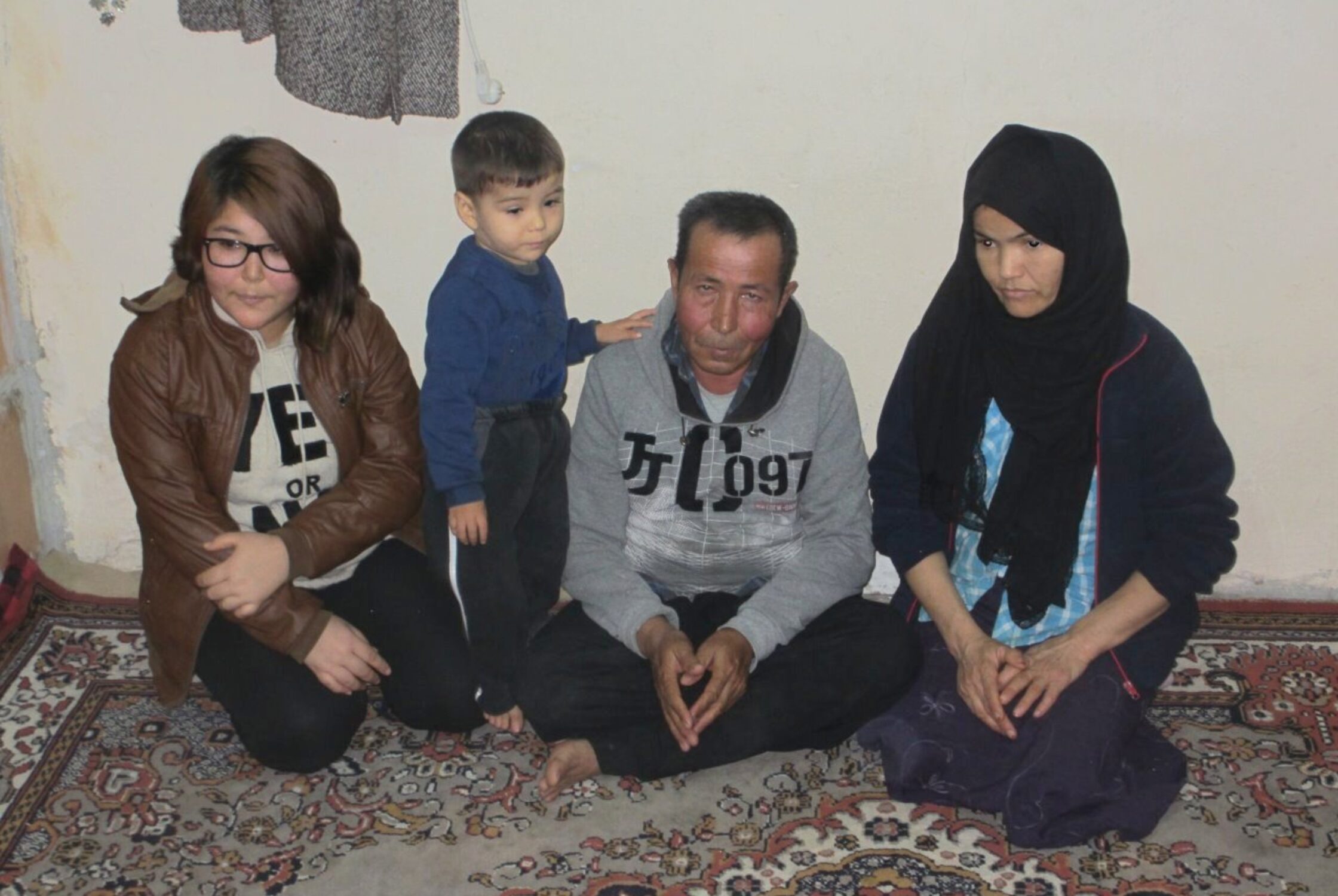Many Refugees in Turkey Struggle to Keep Warm

Before leaving Washington, D.C. in late November for a research mission to Turkey, I debated whether to take my warm winter coat, thinking it would not be that cold. A week later, sitting on a floor with Sana*, an 18-year-old refugee from Afghanistan, I quickly realized I’d been wrong. The cold weather and the challenges of keeping warm this winter were recurring issues raised by the refugees from Afghanistan, Iran, Iraq and other countries, during the two weeks my Refugees International colleague and I spent in different cities in Turkey.
In the city of Denizli – where overnight temperatures now fall as low as 24 degrees Farenheit (or -4 degree Celsius), Sana* told us she had to drop out of her second year of high school because of her asthma. She said her school sometimes had to call an ambulance to fetch her, and eventually the school manager advised her to stop attending and stay at home. Sitting on the floor of the room where she, her parents and her two siblings sleep on carpets and where their source of heat is a coal stove, it was easy to see how the cold and humidity had contributed to her medical condition.
With 2.7 million refugees from Syria and around 300,000 from other countries – primarily Afghanistan, Iraq, and Iran – Turkey hosts the largest refugee population in the world. For these refugees, the cold is just the latest in a series of challenges they have had to face.
For refugees like Sana* and her family, the struggle to keep warm is a daily battle. Some said they received a small amount of coal from the government, but that it is not enough. Others said they received no assistance of any kind at all. As we met with one man in small room surrounded by his children and grandchildren, he said that due to the lack of opportunities to earn enough wages everything in the room had been given to them by local people, even the cardboard stacked next to the stove to burn in place of coal they could not afford.
These difficulties stem from an inability to work. Refugees from countries like Afghanistan and Iran are only given “conditional international refugee” status. Turkey limits the scope of the 1951 Refugee Convention, which grants the right to work to people who have escaped persecution in a European country. But people fleeing persecution in other parts of the world must have work permits – a considerable obstacle especially for low-skilled labors. Under Turkish law, their stay in Turkey is meant to be temporary, excluding any prospect of long-term integration into Turkish society. The people we spoke with told us about their struggle to find work even in the informal economy, to receive the wages owed to them by exploitative employers, to pay their rent, and to communicate in a language they don’t know.
For refugees like Sana* and her family, the struggle to keep warm is a daily battle. Some said they received a small amount of coal from the government, but that it is not enough. Others said they received no assistance of any kind at all.
A program carried out by the UN Refugee Agency (UNHCR) aims to provide 500,000 refugees with a payment of 700 Turkish Lira – about $200 in US dollars – to help them face this winter. But only those identified as the most vulnerable will receive it, and it is a one-time payment, not a regular income. With 2.7 million refugees from Syria and around 300,000 from other countries – primarily Afghanistan, Iraq, and Iran – Turkey hosts the largest refugee population in the world. For these refugees, the cold is just the latest in a series of challenges they have had to face. Most have to fend for themselves and find work and housing and try to heal from the violence or persecution that made them leave their homelands. We spoke with female-headed households, LGBTI persons who left their country because they could not be themselves and be safe, and with women who had survived sexual abuse. They described their escape and their journey to Turkey, their current life, and their hopes for the future. Across the board they face significant challenges to establish stable and sustainable lives in Turkey. The need for durable solutions and greater assistance in the interim was all too clear. Less than 7,000 refugees of all nationalities have been resettled from Turkey to the United States so far this year, and 2,661 Syrians have been resettled to European Union countries and Norway. Given these small numbers and the length of the process for the few that will benefit, this winter is unlikely to be their last in Turkey.
Top photo: Sana*’s family in their home, Turkey, December 2016.
*Name has been changed..